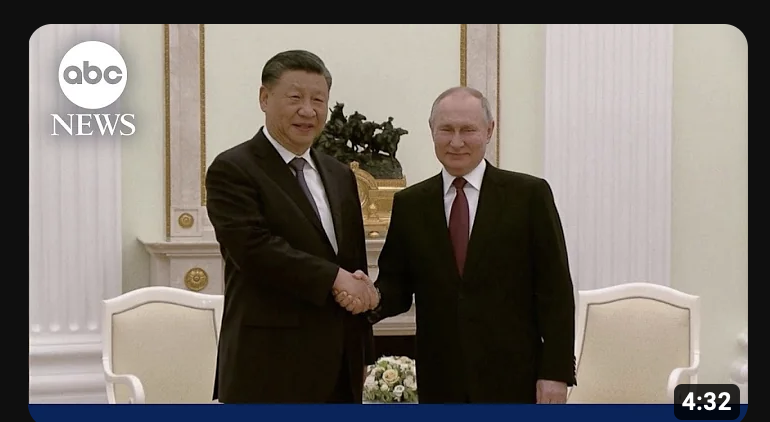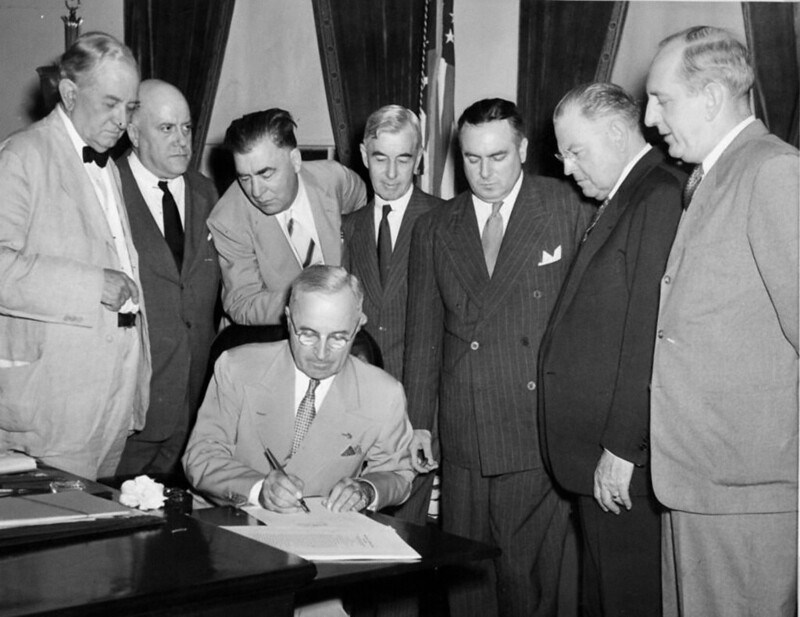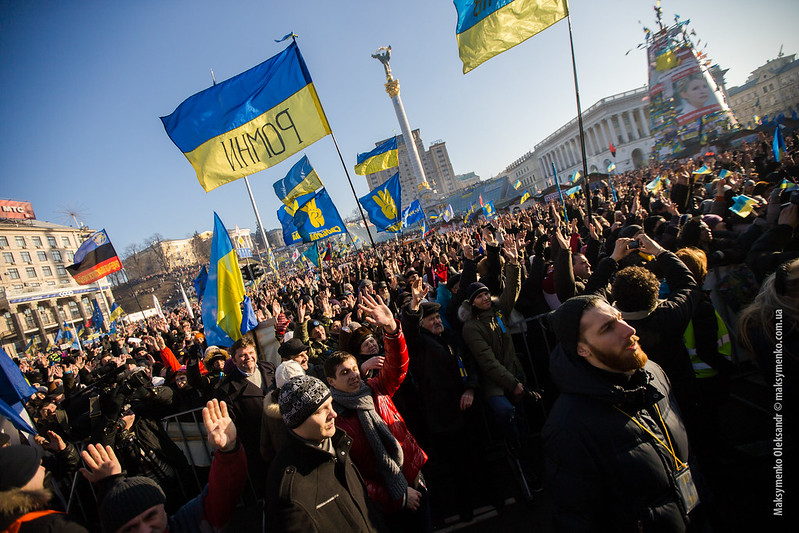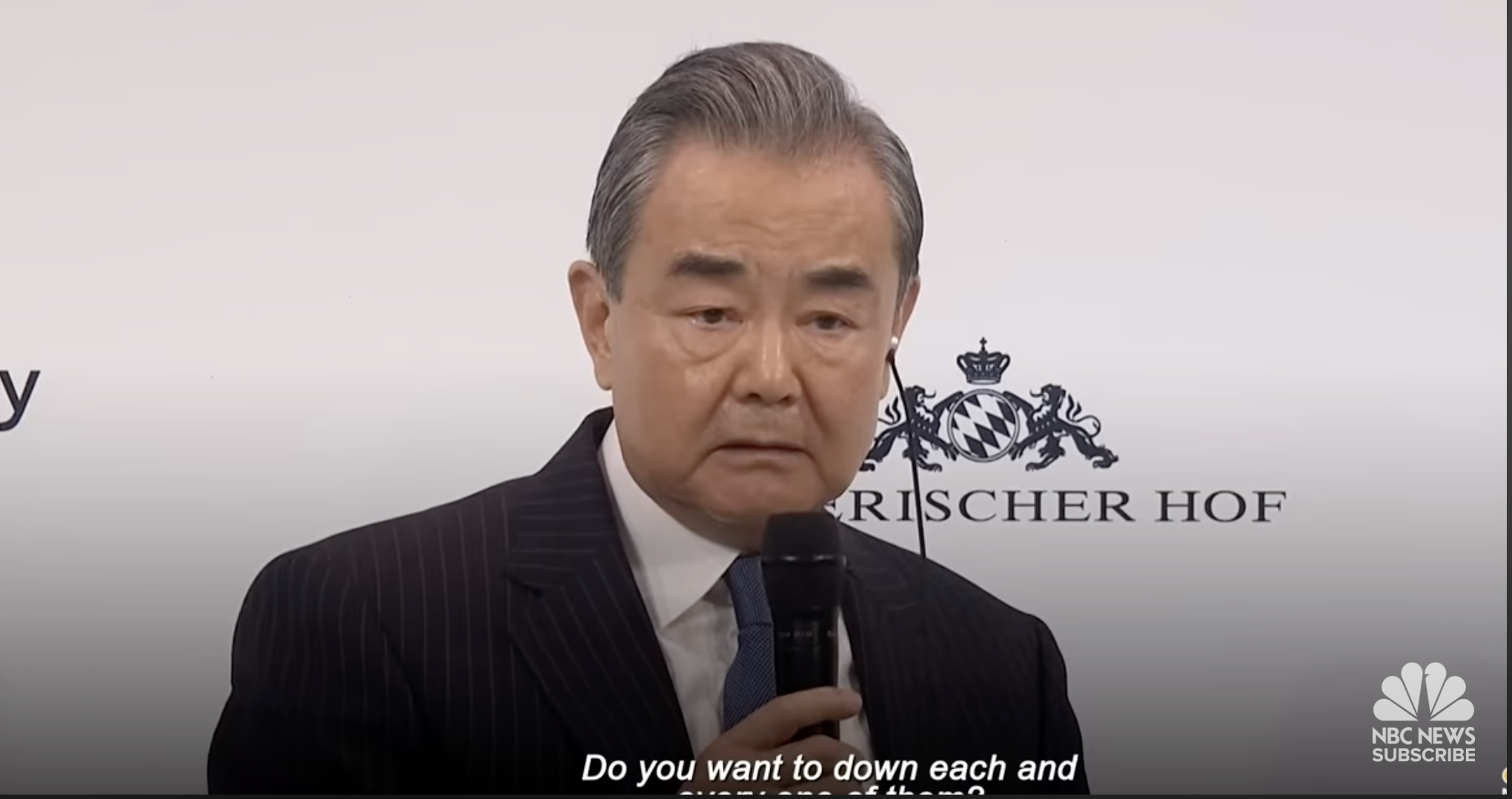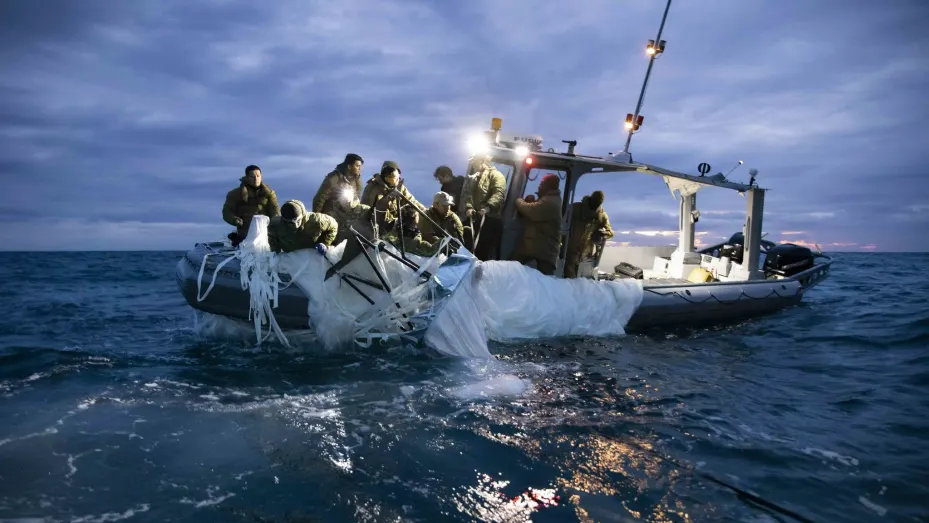Godfree Roberts discusses his book, “Why China Leads the World” and five things the Chinese are doing that affect your life.
Jeff J. Brown
Note: The actual interview begins at approx. 09:57.
China Rising Radio Sinoland 230329
Intro
 Godfree’s numerous interviews and articles on China Rising Radio Sinoland can be found here, https://chinarising.puntopress.com/search/?q=godfree
Godfree’s numerous interviews and articles on China Rising Radio Sinoland can be found here, https://chinarising.puntopress.com/search/?q=godfree
Godfree’s newsletter, https://www.herecomeschina.com/
His newly updated book, Why China Leads the World: Talent at the Top, Data in the Middle, Democracy from the Bottom, https://www.amazon.com/dp/B08Q9PN8SV?ref_=pe_3052080_276849420
Brighteon video does not censor and supports free speech, so please subscribe and watch here.
Transcript:
Jeff J Brown (Host): Good morning, everybody. This is Jeff J Brown China Rising Radio Sinoland on the D-Day beaches of Normandy. And my show’s most popular guest, Godfree Roberts, is on today. How are you doing, Godfree?
Godfree Roberts (Guest): Very well. Thank you, Jeff.
Jeff: Godfree and I go back years. He has been on my show more than anyone else. This will probably be the 10th or 11th show, maybe even the 12th show. I’d have to go back and count. And for all the fans out there, we became good friends. We were good friends before my wife and I moved to Chiangmai in 2019, right before the COVID lockdown. And Godfree was nice enough to get us settled into Chiangmai, where he lives. And unfortunately, we went to France in the summer of 2020 and could never go back.
So, we’re retired here now and which is fine. The cheese is good, the wine is good, the bread is good and it’s beautiful Normandy, impressionist art. So, anyway, we are going to get back now that the floodgates, so to speak, for tourism have opened up. We really look forward to going back and having some good Thai food with Godfree. We’ve got two other friends who are members of the China Writers Group who are there… Eric Arnow and Richard… I’m having a brain burp, Richard. Anyway, he hasn’t commented in quite a while. But, Godfree, you look healthy and happy.
Godfree: I feel it. Yes, I’m thriving here.
Jeff: Beautiful Chiangmai. Well, the last time we had our show and it’s been too long, but the last time I just pro-offered Godfree his “Here Comes China Newsletter” which is wonderful (https://www.herecomeschina.com/). And I will put that in there. He has his new book, the updated book…
Godfree: “China Leads The World”.
Jeff: Yeah, “China Leads The World”. He’s updated it from 2020. He now has the 2023 edition (https://www.amazon.com/dp/B08Q9PN8SV?ref_=pe_3052080_276849420). And so anyway, I’ll put the link for that also. The last time I just said since he and I are both old China hands, I said Godfree, looking in your crystal ball, what are five things about China that most Westerners don’t know about and need to know about? So, what’s the first one, Godfree?
Godfree: I think the first one is how heavily China is enmeshed in the world. How broadly and how deeply we hear about the Belt and Road occasionally, but that’s about it. But that’s one of a dozen equally enormous, very powerful networks. For example, one physical network that fascinates me is called the Global Energy Interconnection (GEI: https://en.wikipedia.org/wiki/Global_Energy_Interconnection). It uses renewable energy and moves electricity around the globe with the sun from one country to the next.
Now, that’s a nice idea, you’d think, but already they’ve spent 15 trillion with a T on this thing, and it’s already starting to kick in big time, shuttling hydropower from Russia to Japan, Japan’s nuclear energy to South Korea. Russia is connected to Iran at one end of the network and to China at the other. And Africa is being hooked up. It’s an enormous project. And China, the founder, and the director is the founder, of course, the director of State Grid.
Jeff: The largest utility in the world, electric grid in China. We used to be their customers. We were their customer for years. And they provide great service. And it was cheap.
Godfree: Yes.
Jeff: So, it’s called the Global Energy Interconnection?
Godfree: Yeah.
Jeff: 15 trillion US or 15 trillion Renminbi?
Godfree: US.
Jeff: Wow. That’s incredible.
Godfree: Big bucks. It’s come from a lot of consolidation and buy-ins but the capital value that they put together is already 15 trillion. But when it’s done man, it’s automatic. Put the damn thing on automatically.
Jeff: Maybe that’s one of the reasons Saudi Arabia is deciding to look east and has come to a peaceful reconciliation with Iran to extend that electric grid into Saudi Arabia, because I know they’re doing everything they can to try to wean themselves off of oil for their energy, because they know one day they will run out. And so, they’re looking for solar, nuclear, and other ways to have adequate energy into the 21st century. But we’ll look into that. I did not know that one. I’m really glad to hear about that. What about India? What about Southeast Asia? Are they getting into it or the DPRK?
Godfree: Southeast Asia is already totally into it. They’re doing it and connecting it. And it’s quite a lively scene here. And it’s everyone’s kind of accepting it because the railway sort of, okay, as long as we’re connecting with the railway, we may as well connect our grids. And as long as you’ve got a dam that produces more electricity than you need it saves us building a coal plant.
Jeff: Yeah. And then also, just like back in the old days when the United States was stretching railroads from the East Coast to the West Coast of the United States, of course, 15 to 18 million Native Americans paid the price. But as long as they were running that rail line all the way out to Saint Louis and then to Denver and then to San Francisco, they were able to run the telegraph lines right alongside the rail lines. And I’m sure as long as they’re clearing space for the rail line to come from Kunming in China down to Bangkok, they’ll probably be able to run a high-tension line along the rail line. All right. Well, that’s really interesting. What about anybody in Europe taking a bite at it, or are they being vastly suppressed by Uncle Slaughter?
Godfree: They’re being suppressed, of course. But, I mean, that was the whole point of the pipeline attacks, to decouple them. It’s an interesting gamble. I don’t think America is going to be able to pull it off. I think they’re going to lose Europe. I heard a rumor the other day that 500 billionaires from China that are the ones who are members of the Communist Party are being circulated around Europe sponsoring everything and endowing colleges and saying to the old money in Europe, listen, you’re going to get a much better deal from us, than you will from Uncle Sam, because those are the people. If anyone can save Europe, it’s them.
Jeff: Yeah, absolutely. I just heard read the absurd article where the US is just beating Germany, just beating Germany to a pulp to remove 80,000 Huawei 5G telephone towers and replace them with more expensive, inferior Nokia towers or Ericsson towers. And it’s going to cost 3 billion US to remove the 80,000 towers that are bigger, better, faster, and cheaper, and then spend another 5 billion US to replace the 80,000 Huawei towers that are superior.
This is just like poor Europe. They’ve got to purge their halls of power of all these fifth columnists who the United States has just infected the European woodwork in the halls of power here, with all these Washington sympathizers, because otherwise living here, I can tell you it’s just going to keep getting worse and worse. So, point number two, Godfree, take it away.
Godfree: Number two is computing, which we’re told China is inferior in, particularly thanks to the embargoes. But I think that’s misleading. The Chinese manufacture more chips than anybody on earth. Anyway, already half of the foundries in the world, the new foundries are in China more than 50%. One of them is an optronics foundry, the first commercial industrial optronics foundry that builds, instead of using moving electrons, uses light.
Jeff: Is Huawei involved in that?
Godfree: Not as far as I know.
Jeff: I saw an article that said that they were into optical chips.
Godfree: Oh, I’m sure they are. I mean, they’re into this high-tech, but this is a foundry. This is like a TSMC building. That’s all it does. It doesn’t have in fact it’s 100% Chinese IP. So, no patent problems, and no embargoes. It’s much cooler, it’s cooler, uses less power, and runs quicker. So, we can already see that when Xi announced publicly in 2015 that chips computer chips would be a bottleneck….
You can bet your bottom dollar that they’d been working on that for years before he made that announcement. That wasn’t. It’s not like America where they get up and make a grand announcement and then years later some funding comes through and something happens. No, they were already on top of it. So, we’re starting to see that pay off now. Another example. Do you remember when China took the lead in supercomputers and had the fastest?
Jeff: I’ve written about it.
The Chinese Navy (PLAN) already outpaces the US Navy in tonnage and rate of construction. China's first home-designed and built nuclear carrier may enter service as early as 2026. Contrary to Western imperialist navies, which focus on projecting power, especially the US, Beijing's ships are tasked with protecting the motherland. Their role is primarily defensive. (TGP screenshots)
 Godfree: What happened was there was an immediate embargo on high-speed Intel chips to stop that. So, anyway, a few years went by and China produced the fastest computer in the world, only built entirely with Chinese chips and everything.
Godfree: What happened was there was an immediate embargo on high-speed Intel chips to stop that. So, anyway, a few years went by and China produced the fastest computer in the world, only built entirely with Chinese chips and everything.
Jeff: Oh, absolutely. I reported on it.
Godfree: Yeah. So, this latest throttling of the embargoes coincides with a point to a problem that America has created for itself with these embargoes. China immediately went dark on supercomputing. That’s the last we ever heard of them was that time.
Jeff: When they broke the world record.
Godfree: Yeah, with 100%.
Jeff: Yeah. The Tianhe supercomputer.
Godfree: Yeah. Well, here’s the update, and here’s the consequence. China just installed its fourth exascale computer, complete with software. It’s building six more. One for each of the ten computing centers. All of them are joined with lightning-fast connections so they’ll function as one gigantic centrally controllable supercomputer, ten times bigger than anything America has ever had. But they’re not going to talk about it, because we’ll just try to mess with it. So, we’re losing. We’re falling behind and not knowing it. I mean, you’ve seen the signs. 5G is way ahead. There’s a lot of stuff like that.
Jeff: Yeah, of course, Germany is not as big as China, but in fact, I was surprised that Germany actually had 80,000 5G towers. But I can’t remember how many hundreds of thousands of 5G towers China has, but I think every.
Godfree: It has 2 million.
Jeff: Yeah, 2 million. And virtually every province, every county, and at least the county township, they have 5G across the entire country including Xinjiang and Tibet and Qinghai and Ningxia, and inner Mongolia, these unpopulated areas, all have 5G. And we don’t here in France, 5G is just almost unheard of here. We just got fiber. We just got fiber. 2023. Woo! We finally got fiber. And there are still provincial cities in France that still don’t have fiber.
They’re still using ADSL fax phones and copper wire phone lines like fax lines in the 1980s for their Internet. And we know because for two years we lived with it. When we first got here it took, I would upload a show like ours. I’d go to bed at 10:00, start uploading it and pray that it had been uploaded by the time I woke up in the morning. And that was in France up until just a few months ago. And 5G, forget it. Don’t even know about it here.
Godfree: That’s very interesting, isn’t it? It’s kind of all these little data points. All suggest one thing, drifting away for losing touch, for not caring.
Jeff: For the people, not caring for the people.
Godfree: It’s going nowhere, really.
Jeff: Caring for the 1% but not the 99%. So, profit over people. That’s the difference. And of course, in China, it’s people over profit. So, of course, people go, oh, that’s not true. They’re just as evil. They’re just as bad. No, they’re not. I’m sorry. They’re not. It’s different. So, I wonder if those ten supercomputer centers, I don’t know if the technology advanced enough but of course, China is way, way, way ahead of everybody, Europe and the United States on quantum communication, using quantum satellites and quantum lines. Do you know if those supercomputers are going to be quantum-ly hooked up or if it going to be good old fashioned? For those computers, they probably need a fiber cable about 30 or 40cm in diameter.
Godfree: I think they’re going to be kept separate. It looks like quantum computers have at the moment rather limited applications. But its communications have got the best security in the world. Speaking of which. That’s another thing that people don’t know is the density and sophistication of China’s military presence in the West Pacific. It’s extraordinary. It’s unbelievable.
There’s barely a cubic meter of the ocean that isn’t monitored sometimes from 2 or 3 different angles. It begins with far-out satellites way, way back, then the nearest satellite has its job to do. Then they have these wing loom, the big drones that stay up for a month at a time. They have a 60-thousand-foot thing that they relay information and they use onboard artificial intelligence in their satellites. They have fishing boats towing sonars.
They have submarine sonar rays anchored to the bottom of the ocean. It just goes on and on and on. They could pick out anything anywhere. And they say, by the way, they actually say that anything that moves in the West Pacific, we know about it. So, it’s an awesome defensive thing to encounter as a military commander imagine facing that and realizing that they had nine different ways of locating you and five different ways of using that to kill you.
Jeff: Yeah, with all the missile technology and hyper gliders and aircraft carrier killers. But what a lot of people don’t know is, is that China has the biggest deep-water navy in the world. And they haven’t even launched their third aircraft carrier group, which is supposed to be launched in June and it’s called the I think instead of His Majesty, Her Majesty’s, whatever HMS thinks it’s CMD or something or CMS. The Fujian is going to be launched. It’s going to be nuclear-powered and it’s another massive aircraft carrier group.
And of course, what’s great about China is all they have to do is just go to Japan and surround Taiwan. And they’re like an armored castle whereas the United States has to haul materials from the Los Angeles and Seattle Ports, which are barely functioning and broken down. And China doesn’t have to go to Hawaii or the Catalina Islands off the coast of Los Angeles to make its point. It just has to defend its own territory. And yeah, also the Coast Guard, they have a massive Coast Guard.
Godfree: Yeah. Yeah.
Jeff: And they have a massive commercial like you said, fishing and transport for regional from coast to coast from like from Fujian down to Xiamen. They’ve got tens of thousands of these boats in the South China Sea. And they are all expected to be ready to fight to defend the country if war is declared. So, the United States would have to, and France and England, for whatever they’re worth in that part of the world. And Australia. Oh, mighty Australia.
They will have the world’s largest military in East Asia, the world’s largest navy, the world’s largest commercial fleet ready to practice war alongside the People’s Liberation Army, and one of the largest coast guards in the world that is also trained to participate and coordinate with the People’s Liberation Army. I mean, I don’t want the war to happen, but I think it would be almost kind of fun to watch to see the United States and Japan and poor South Korea which has no desire to be involved just get absolutely pummeled. But, the scary thing, of course, Godfree, is they might go nuclear to save the day. What do you think?
Godfree: I think if they went nuclear, I think the results would be very much like the ones we see with COVID the same ratio. China would suffer 1% of the casualties for the same reasons we saw with COVID. That was a civil defense drill. The Chinese government knew that COVID-19 wasn’t a particularly lethal virus. For healthy people, it’s not a problem. But they needed a civil defense drill.
They needed to make a statement about who was going to survive and who was not going to survive. You can see that they’ve got their shit together and nobody else does. And they also have the world’s best after Russia including Russia’s S-400 systems. They have superb anti-missile stuff and not like 2 or 3, but hundreds of thousands of them like massive amounts. So, they’ll be fine. America has no defense, no missile defense, whatever, and no civil cohesion.
Jeff: I don’t even know if the US generals and Joe Biden know that since 1961, China and North Korea have had a mutual defense treaty and they just renewed it, agreed to continue it, I think maybe a year or two ago. So that if the United States does get into a physical war with China, they will automatically be in a physical war with North Korea and nobody wants to mess with the North Koreans. I mean, can you imagine 1.2 million North Korean soldiers pouring across the 38th parallel, I mean, into South Korea? I mean, the United States is trying to attack China. And the DPRK has thermonuclear multi-headed intercontinental ballistic missiles that can take out the East Coast of the United States. These people are just unbelievable.
Godfree: It is. That’s the tough bit we all are puzzled about how can they talk like this. Even what’s the percentage where are we going with it? A nuclear war that’s what you want.
Jeff: Yeah, it’s frightening. Unfortunately, I think that’s what they, the old expression, the old poker expression double down. Well, I lost that round. I’m going to double down on this round. So, they’re getting their butts waxed in Ukraine. They’re running out of arms, yet in their absolute megalomania and their narcissism they’re now, I really feel like they’re going to try to do the same thing with China. And it’s just like, God, God help us, God help us, and God, it’s just unbelievable. All right. Next point.
Godfree: The next point is, is way at the other end of the spectrum, and that is the village program that’s ongoing right now. The energy that went into anti-poverty and springing people lost from poverty has been continued, of course, and in fact, is getting more resourced and it is to create village clusters, intra-village specialties, arrange communications and deliveries and pickups, and so forth. Another reason the Chinese are way ahead of us on drones is, is this part of this campaign is to help remote farmers get their fresh duck eggs to Shanghai gourmet restaurants overnight for twice the price that they were getting a month ago.
In essence, the whole program has been done for 100,000 villages with great energy with digital currency available to them directly from the central bank to them. Just put your card in, and you get your sprayer or your tractor will finance that. Making, bringing this reality to life so that they can see each other. They can share weather information from the satellite just a whole bunch of stuff. It’s very intense and it’s huge and it’s invisible for obvious reasons. It’s very down home. It’s there’s nothing to see, really.
Jeff: And of course, Godfree and I both know that in 2013, I think it was, Xi Jinping, the new president who announced the lofty goal of eliminating extreme poverty across the entire country there. And Florence and I saw this when we were driving around and traveling around China, we would see these villages that were let’s face it, they were extremely impoverished. I mean, just hovels and shacks. And I remember we were in Yunnan and we were right on the border with Vietnam and we would see these villages there and I’d say, “That’s one of the villages they’re going to fix”.
And they did. The goal was by 2020 to do it. They did it. They did it. You don’t do it for free. They spend 115 billion US equivalent in RMB to help 90. It was, I can’t remember 80 or 90 million people in the most extreme poverty to bring them up with an acceptable lifestyle. And no other country, no other country could ever imagine doing that. And I am sure that those people are also now benefiting from the village program that you’re talking about.
So, because I know they’ve been trying all kinds of ways to connect, I know they’ve been beating up Alibaba. I know they’ve been beating up JD.com. They’ve been beating up all the commercial platforms that sell stuff like Amazon, but it’s Taobao and JD and Meituan. I know the government has been putting a lot of pressure on these online vendors to work with the farmers to find ways to get their product from the farm directly to the consumer. And I think that must be one of the things that you’re talking about, isn’t it?
Godfree: Yeah, that’s exactly it. And speaking of which, they’ve extended that in interesting ways. I was talking to a Spaniard the other day. He sells Spanish restaurant foods in Thailand as the whole country. And he said he has a ham supplier.
Jeff: Oh, their ham is to die for.
Godfree: And he said they’ve got a deal with it either JD or one of the big ones. As soon as it’s loaded onto JD’s pickup lorry, they shoot the code, they hit the thing. In Spain the driver just hits zaps it and the money appears in the farmer’s account instantly.
Jeff: In Spain?
Godfree: Yeah. Before it’s even left his farm gate.
Jeff: Probably at a higher price than maybe a wholesale in Spain, I don’t know. But even if it’s the same price, they’re better off with the speed of money. Yeah, that’s unbelievable.
Godfree: And on the consumer end, that’s another thing I want to talk about just for a minute. Thailand is in the RCEP – the Regional Comprehensive Economic Partnership. And it’s set up by ASEAN and China is a member and so are Australia and New Zealand I believe. It’s the largest trading place in the world thing in the world, a huge market and I’m a beneficiary of it. I’ve become addicted to AliExpress, and Alibaba.
Jeff: Yeah, we use it too.
Godfree: Everything I need an electric screwdriver, a retractable dog leash, no problem. And the thing is, they get here in like 72 hours for a third price that I would have paid at home and the freight is like $1.12. That’s it. That’s the deal. Anything you want, anything you can imagine wanting. Electric knife sharpener, I’ve wanted one for years. It was here in three days. It cost 31 bucks. And it works brilliantly.
Jeff: I don’t think Thailand probably has a big enough market, but Europe does. And so, what Alibaba does, which is basically the Taobao outside of China, Taobao is the Amazon of China. And so, they have a separate platform called, for those of you who don’t know, called AliExpress. And everybody should sign up for it. If you’re in France, it’s in French. If you’re in Spain, it’s in Spanish. If you’re in Germany, it’s in German. And so, I have AliExpress in France. And so, I look up stuff.
But a year or so ago, an individual package would arrive from China. And of course, the freight was more expensive. Now they have such a huge volume flooding into France that when I get the package now, it is from the French post office. So, what they’re doing is, they have collection centers. All the AliExpress vendors in China must have collection centers. They’re obviously filling up 40-foot containers with all of these individual orders. They’re arriving probably in Paris or Marseilles. I don’t know where or maybe Le Havre by ship, I don’t know.
It is slow. It does take about a month for it to get here. But now the freight is like nothing. And it’s got a tracking number. And now I know that Alibaba, even has centers here in France for the most popular items and you order them and you get them in three days from Alibaba, from AliExpress. It’s Chinese stuff but they’re actually obviously seeing what the market’s demanding and they’re advanced shipping it to France and they’ve got centers here that immediately dispatch it and a lot of the time the shipping is free or maybe €1 or €2. So, it’s just unreal.
Godfree: It’s also very tempting. There you can now buy a really beautiful what we would have once called a professional video camera, high-def 8k, and everything with the built-in mic and the kind of thing that you see journalists using which were $50,000 twenty years ago, $5,000 ten years ago. They’re 500 bucks now. Amazing.
Jeff: What else is on your list?
Godfree: There’s a little quiet race going on. And I think your viewers might enjoy watching it and you can update them. But there’s a race to see who will successfully get their email system (catapult) working on their aircraft carrier first, both Gerald Ford, the big new American aircraft carrier, and the recently launched Chinese aircraft carrier have electronic or electrically driven takeoff and landing instead of steam-driven catapults. And the Gerald Ford has not, after 20 years of development, has not been able to get its catapult to work reliably.
So, it can’t go very far from the shore if the planes want to take off because they don’t know if they’ll be able to come back and land safely because the email is not reliable. So, here’s the race. Who will have combat-ready emails? First, the Gerald Ford, which was the ninth-generation aircraft carrier built for $12 billion and started 20 years ago, or the new Chinese carrier started three years ago for 1 billion.
Jeff: Yeah, the second one that just came out, what was it, a year or two ago, it’s the Liaoning. The Liaoning is already. So, they’ve already got two aircraft carrier groups watching Taiwan and Japan. Well, it’s really funny. I made a comment about this. In fact, when they launched the Liaoning, I think it was a couple of years. In fact, I think maybe it was in Thailand. We were in Thailand when I did a report on it.
I pointed out that China is the first country since World War Two to build as many aircraft carriers and groups in such a short period of time as the United States during World War Two, back when Franklin Delano Roosevelt’s administration essentially nationalized America’s industry. They were building three aircraft carrier groups a year during the Second World War. And they actually worked.
And this catastrophe with the Gerald Ford, there’s ...I don’t know if you’ve ever seen it, Godfree, but there’s this I think maybe I’ve seen it on www.southfront.org but occasionally they’ll put up a map of where are the aircraft carrier groups of the United States around planet Earth. They’ve got the Nimitz. And of course, it has to be on the other side of Japan because otherwise the Chinese DF21D the aircraft carrier killer would wipe it out in one minute. And so, they’ve got that one. Did you know that the United States Navy is in such pitiful shape they cannot even keep an aircraft carrier group in the Persian Gulf? There’s not one there anymore. They’re all in Los Angeles and they’re all in Virginia getting repaired.
Godfree: Well, you know why that is, Jeff?
Jeff: Why?
Godfree: I’ve read a lot of naval history of the fun kind, not the technical kind or the interesting kind. And this happens in long spells of peace where you have a big navy and a lot of ambitious officers and nothing to distinguish them except competitions. So, they run their crews and their boats ragged day in and day out with gunnery practice or whatever the shit it is in it that they’re supposed to do because their KPIs (key performance indicators) are being automatically reported to Sasebo, Japan or to Pearl Habor. They’ve been flat out for years and some of the reasons they’ve had these accidents are they’re running their crews ragged. The kids are tired.
Jeff: Yeah, yeah.
Godfree: So, they had to dial back the tempo. And the other thing, of course, is that as we know, the last time I looked, it costs about to maintain a strip of freeway.... costs something in the range of 10% of its original cost every year. It’s just a piece of concrete, very expensive, because for all kinds of reasons, drainage and blah, blah, blah. Well, a warship, which is extremely complex and custom-built. They’re not mass-produced, are extremely need a great deal of maintenance. And what’s the first thing that every capital-intensive industry skimps on is maintenance.
Jeff: Yeah, is maintenance.
Godfree: What a shiny ship, everyone wants a shiny ship. I want one. So, that’s what’s been happening. I think they’ve degraded it with a lot of weak oversight and poor senior command. No doctrine, really. The corruption thing did a lot of harm.
Jeff: Well, yeah, yeah, you and I both reported on the incredible amount of corruption in the Navy. I mean just like payola and kickbacks. And it’s just like something out of, Guido in Sicily in the Italian mafia. And these are like four- and five-star admirals in the US Navy just corrupt to the core. Just unbelievable.
Godfree: Yeah, it’s kind of sad although I do think they’re an anomaly. But the problem is that the system is corrupt. It’s not just they’re reflecting the fact that the chiefs and the Defense Department are thoroughly corrupt. Everyone knows that.
Jeff: Yeah. Yeah. With the McDonnell Douglas and Boeing and Raytheon.
Godfree: They’re all going to get a big payoff.
Jeff: Yeah, absolutely. They’re all getting their cut. So, anything else, my dear friend?
Godfree: Just one parting shot to this image of a sometimes-working emails system on the Gerald Ford. And it’s eight wings of F-35 jet planes that aren’t too reliable either.
Jeff: Yeah, I know that.
Godfree: So, you could get maybe the launch will work, but the F-35 engine won’t.
Jeff: It’s just unbelievable. And if a defense contractor in China put out the F-35, they would be in jail. They would be in jail and out of money. They would be destitute in jail. And if they endangered the lives of the pilots, they would get a PLA bullet in the back of the head, and yet here in the United States, everybody’s just nonchalant. The F-35 doesn’t work. It’s being all recalled because this doesn’t work now and that doesn’t work.
And then there was a crash recently in Texas where it landed and it crashed on the ground. And it’s just like Looney Tunes. It’s like the Keystone Cops. But it all gets back to, well, we need more money. We need more money. Just give us another 10 billion and we’ll get it taken care of because it’s not about national defense, it’s about making the defense the military-industrial complex, congresspeople, senators, and politicians very, very rich.
Godfree: That’s it.
Jeff: Exactly. Well, listen, Godfree, this has been wonderful. Godfree Roberts, “Here comes China” (https://www.herecomeschina.com/) his website. I will put the link on. I get his weekly newsletter. I love it. He is updating his book from 2020-2023. The title again, please. I’ve read it, but I can’t think of the name right now.
Godfree: Why China Leads the World: Talent at the Top, Data in the Middle, Democracy from the Bottom (https://www.amazon.com/dp/B08Q9PN8SV?ref_=pe_3052080_276849420)
Jeff: There you go. And our mutual friend, which I forgot. I had a brain burp. It’s Richard Miller, another one of our China Writer Group members along with Eric Arnow and you and Chiangmai, we miss you and we hope to come back and see you soon. Take care, Godfree. Be healthy, be happy, and be safe. I will give you a Buddhist bow to a guy in a Buddhist country.
Godfree: Good for you. See you soon.
Jeff: Talk to you soon.
Godfree: Bye, bye.
Jeff: Bye, bye.
 The China Trilogy. It consists of 44 Days Backpacking in China - The Middle Kingdom in the 21st Century, with the United States, Europe and the Fate of the World in Its Looking Glass (2013); Punto Press released China Rising - Capitalist Roads, Socialist Destinations (2016); and for Badak Merah, Jeff authored China Is Communist, Dammit! – Dawn of the Red Dynasty (2017).
The China Trilogy. It consists of 44 Days Backpacking in China - The Middle Kingdom in the 21st Century, with the United States, Europe and the Fate of the World in Its Looking Glass (2013); Punto Press released China Rising - Capitalist Roads, Socialist Destinations (2016); and for Badak Merah, Jeff authored China Is Communist, Dammit! – Dawn of the Red Dynasty (2017).
Jeff can be reached at China Rising, jeff@brownlanglois.com, Facebook, Twitter and Wechat/Whatsapp: +86-13823544196.
check this page on his special blog CHINA RISING RADIO SINOLAND
The battle against the Big Lie killing the world will not be won by you just reading this article. It will be won when you pass it on to at least 2 other people, requesting they do the same.
 [dropcap]I[/dropcap]f you find China Rising Radio Sinoland's work useful and appreciate its quality, please consider making a donation. Money is spent to pay for Internet costs, maintenance, the upgrade of our computer network, and development of the site.
[dropcap]I[/dropcap]f you find China Rising Radio Sinoland's work useful and appreciate its quality, please consider making a donation. Money is spent to pay for Internet costs, maintenance, the upgrade of our computer network, and development of the site.
 Just use the donation button below (yes, click on Sylvester the Kitty)—OR, just as easy, SCAN our QR code!
Just use the donation button below (yes, click on Sylvester the Kitty)—OR, just as easy, SCAN our QR code!
![]()
![]()
![]()

Creative Commons Attribution-NonCommercial 4.0 International License.
| Did you sign up yet for our FREE bulletin? It’s super easy! Sign up to receive our FREE bulletin. Get TGP selections in your mailbox. No obligation of any kind. All addresses secure and never sold or commercialised. [newsletter_form] |




